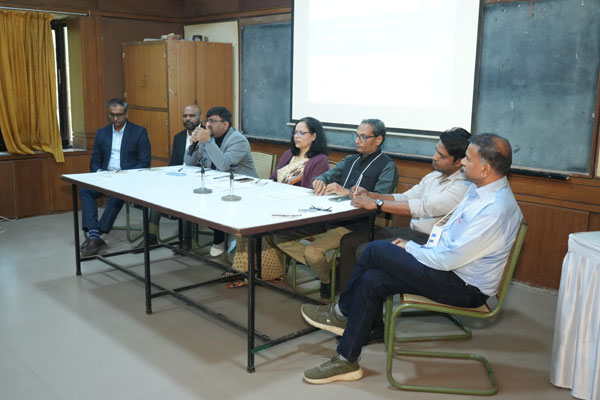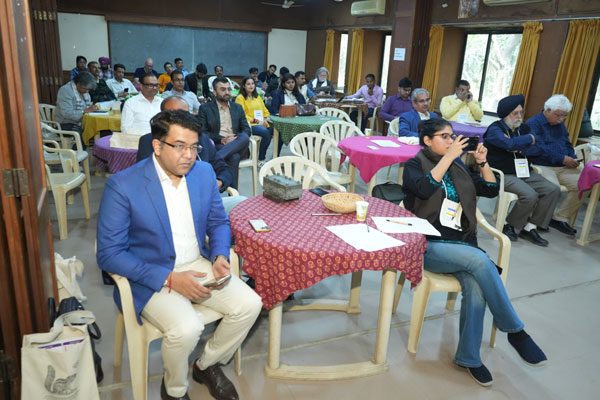Material Recovery Facilities (MRFs) and Material Recovery Centres (MRCs) play an important role in sustainable waste management by facilitating the systematic sorting, processing, and recycling of waste materials
This session focused on the operational dynamics of MRFs and MRCs, exploring both opportunities and challenges in their implementation. Experts and industry leaders shared insights into innovative strategies for improving efficiency, financial sustainability, and technological advancements in waste recovery processes. The discussions highlighted the importance of integrating MRFs into the broader waste management framework to enhance resource recovery and support circular economy initiatives. A significant focus was placed on aligning MRF operations with Extended Producer Responsibility (EPR) targets, ensuring greater accountability from producers and recyclers.
The session, led by the Swachh Bharat Mission – Gramin (SBM-G) Government of Gujarat, provided a platform to exchange knowledge, best practices, and collaborative solutions for strengthening MRF and MRC operations across different regions. Through shared experiences, policy recommendations, and successful case studies, the session aimed to identify actionable steps for optimising material recovery efforts and fostering a more efficient and sustainable waste ecosystem.


Speakers
Ms Manisha Chandra,
IAS, Pr. Secretary CRD & SBM-G, Government of Gujarat
Mr Saurabh Kumar,
CSR Head, Hyundai Motor India Foundation
Mr Suraj Nand Kumar,
Founder Director, RECITY
Mr Deepak Sahoo,
Director, Recycling Hub
Mr Dharmendra Parekh,
Scientist & Director, Debrisolve Private Limited
Mr Manish Kothari,
MD, Rhino Machines Pvt Ltd